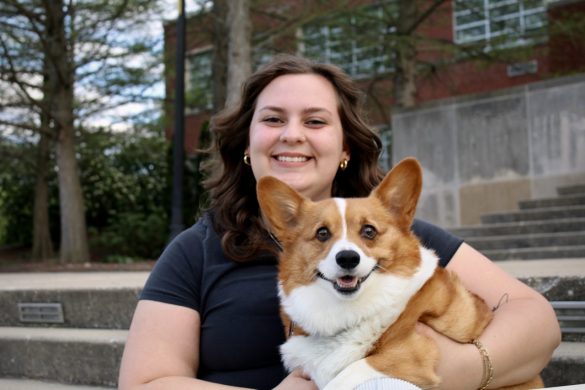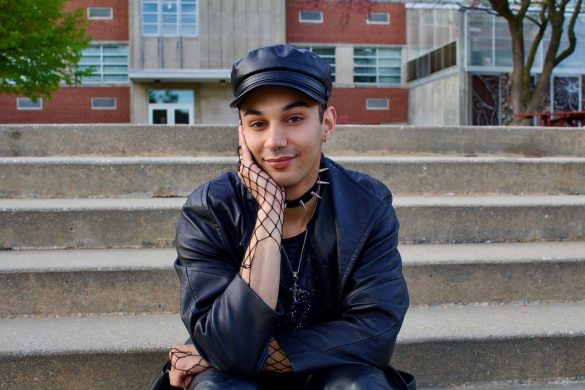The Advanced Placement Program is among the recent victims of political meddling. AP courses are offered by high schools across the country to “willing and academically prepared students to pursue college-level studies,” according to the College Board website. Its newest offering is AP African American Studies, now piloting at 60 schools and due to become available to all participating high schools within the 2024-2025 school year.
In a letter dated Jan. 12, the Florida Department of Education rejected approval of the AP African American Studies course stating that its content is “inexplicably contrary to Florida law and significantly lacks educational value.” Further collaboration between the department and the College Board has stalled until the program makes “historically accurate” revisions, according to the FDE.
Political landscaping in Florida has become uniformly recognizable under the policy regime of right-wing politician Ron DeSantis. Now, in his second term as governor, DeSantis has introduced several pieces of legislation relating to educational instruction, such as House Bill 1557—better known as the “Don’t Say Gay” bill.
As the College Board website describes, each AP course is designed first as an outline. Individual educators or school districts build the curriculum, which is then verified by the College Board. This course is promoted as an interdisciplinary exploration of early African kingdoms, the migration as well as evolution of its peoples and customs and
Black communities domestically. Additional focus is placed on the relevant histories that influence contemporary perspectives and expressions of Black society through “evidence-based learning,” according to the course description.
Another bill that DeSantis signed into law last year was HB 7, more commonly referred to as the “Stop the Wrongs to Our Kids and Employees Act,” or “Stop W.O.K.E. Act.” The law does not explicitly prohibit discussions of race or gender in Florida classrooms, according to the text of the bill. There exists a threat to truth and free speech in the vagueness of the articles held in HB 7. On this basis, U.S. Northern District of Florida judge Mark E. Walker granted a preliminary injunction of the law, citing that HB 7 “unconstitutionally discriminates on the basis of viewpoint in violation of the First Amendment and is impermissibly vague in violation of the Fourteenth Amendment.”
This sort of Orwellian, Big Brother architecture of law subjects a people to the whims of governing parties or members of public service. Here is yet another irony to the Republican rhetoric of protecting freedom while censoring discourse. Suppression of the First Amendment is not limited to this one course offered by the College Board. Numerous school districts in Florida, according to the New Yorker, have removed entire libraries from student accessibility.
Nationally, there are 1,648 distinct book titles on banned lists. Stories whose principal character(s) fit LGBTQ or racially diverse profiles, together, comprise over 80% of these titles, based on tracking by PEN America. The organization of writers and publishers has determined that many of these book bans are the result of specific groups attempting to censor such reading materials in a manner that is discriminatory, with over 70% of these groups having developed in the past two school years.
If the First Amendment to the Constitution is not upheld, if a common and honest commitment to understanding our roots and how they shape our trajectory is not defended, the fruits of our nation’s efforts will spoil before ever fully ripening. The Florida Education Association has made its opposition to DeSantis known in multiple publishings. President of the FEA and elected official Andrew Spar, said, “Our schools don’t need to go back to 1950; we need to move forward toward 2050,” according to the FEA.
African American Studies has been around since the 1960s. The design of the AP program wholly fits with the purpose and integrity of contemporary educational designs. At UIndy, the school’s mission is “to prepare its graduates for effective, responsible and articulate membership in the complex societies in which they live and serve.” Because efforts of this sort matter, we—as students, faculty and administrators—must resolve ourselves to uphold any and all pursuits given to understanding. It is for this reason that the College Board has already returned an amended curriculum to the state of Florida’s rejection—a day ahead of the start of Black History Month. Judgments as to whether the reductions to the course were excessive, sufficient or too few are likely to prompt an organizational chess match of ideology, according to Inside Higher Ed.
The updated AP African American Studies course is without former topics like Black Lives Matter,
racially disparate incarceration rates and reference to materials originating from creators of content whose works are largely based on the aforementioned. This revised curriculum has sacrificed more than it should. We do not, though, live in a world of all-or-nothings.
For the sake of promoting education of and for our peers, some conditions must be placed on hold if we are to sooner overcome the failures of now. The only means of abolishing prejudice is through education.
With each election cycle and each heated debate, we must arm ourselves with a willingness to find a common ground from which we all might ascend. After all, those we leave behind produce the heirs of prejudice.








